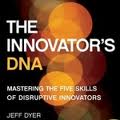 Innovation pays. Innovation is simply doing things differently and finding new ways to connect the dots to change the course of a business, industry, or the entire economy. In terms of business innovation, the major factor is that “I” also benefits the innovator.
Innovation pays. Innovation is simply doing things differently and finding new ways to connect the dots to change the course of a business, industry, or the entire economy. In terms of business innovation, the major factor is that “I” also benefits the innovator.
One only needs to look at the recent fame and fortunes of the Unicorns, the most extraordinary phenomenon in business history. And yet, ‘what Is innovation’ is the most Googled of all innovation related keywords.
As one CEO colleague used to remind people, “I want to pay the $50,000 prize for a great idea rather than reward twenty dollar suggestions.” He knew that the future of his business depended on great ideas, the disruptive, transformational kind. Everything else is just essential maintenance. But did he know how to take it to the next level and make it happen? Did he know how to create the environment to breed such ideas? Did he know how to tap into the collective brains, set them on the right course and energize them?
Children learn all the time. Fast. It seems that they are equipped with five innate tools that allow them to learn and grow:
- Observation that leads to finding opportunities to act
- Curiosity that enables learning
- Courage to ask questions and try things
- Lack of preconceived ideas and judgement–imagination that is not separated from reality
- Playing with everything (that proverbial box that makes a better toy than the toy itself).
There are five characteristics that separate top business innovators from ordinary managers, according to the book, ‘The Innovator’s DNA’ by Clayton M. Christensen, Jeff Dyer and Hal B. Gregersen. The book title is somewhat misleading, as these traits are not a genetic endowment of the lucky few. Anyone can ‘adapt’ their behaviour by applying these rules to program the innovation code into their company’s system.
These five traits of top business innovators form a process, strikingly similar to what content marketing created by a specialist content marketing agency does to grow brands, and children naturally do to allow them to develop.
5 Traits of Top Business Innovators:
- Questioning allows innovators to challenge the status quo and consider new possibilities;
 Observing helps innovators detect small details—in the activities of customers, suppliers and other companies—that suggest new ways of doing things
Observing helps innovators detect small details—in the activities of customers, suppliers and other companies—that suggest new ways of doing things- Networking permits innovators to gain radically different perspectives from individuals with diverse backgrounds;
- Experimenting prompts innovators to try out new experiences and test new ideas;
- Associational thinking—drawing connections among questions, problems or ideas from unrelated fields—, triggered by questioning, observing, networking and experimenting, is the catalyst for creative ideas.
Companies that are led by people with these skills will rule the world. What these companies have in common is Culture that is non-dogmatic, willing to scrap conventional ideas, willing to fail (Google’s search team runs up to 200 experiments at anyone time.) They know what their company stands for!
Great CEOs don’t need to be innovative, creative or mavericks – but to create and lead brilliant companies, they need to provide a clear vision for people to aspire to and create an organisation that is capable of providing an environment for innovation.
Creating a culture of innovation is the way to generating big-prize ideas, over and over. It is a process but also an exciting journey. Once you have shown people where you are going, they will want to follow.
Are you part of a company on the innovation journey? Are you striving every day to be a top business innovator in your industry? What is holding your company, or you, as a leader, from achieving better results faster? Are you asking the right questions?
What will be your next strategic business innovation focus?
- Product
- Technology
- Process
- Marketing Innovation
These are just the most obvious of more than 10 ways to innovate in business. Think what is the most competitive or most strategic move for you to snare success.


